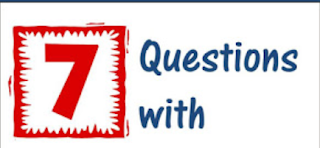Carter Lee Churchfield is a veteran narrative historian with experience ranging from beneath the sidewalks of Seattle to the beaches of Honolulu. Currently she is giving a women's history tour about six tough ladies in Seattle's past. She will soon debut her new tour, A Racial History: How Seattle's Population Has Changed Over Time (1875-1950). For details on Carter's Seattle tours you can visit her website, Tours by Carter. For special requests, her email is ToursByCarter@gmail.com.
1. How and when did you get hooked on history?
I started out as an aspiring actress, as a summer gig I took a tour guide job in Seattle. I liked that there was no script, I could just learn about events and people and uncover the real drama like an archaeologist uncovers an artifact by brushing away the dirt.
The reactions of my audiences told me I was giving them an experience that would linger. They laugh, sometimes they cry. But they leave with a sense of connection to our collective past. That is what thrills me.
2. What role does history play or has it played in your personal life?
I originally moved to a historic neighborhood, Chinatown Honolulu, to create and give a WWII Red-Light Tour. What I quickly discovered was an untapped goldmine of history and a population eager to connect to their own past. I came for a selfish reason, I like telling stories, but what I found humbled me: An unfamiliar, complex culture that is directly affected by an assault on their way of life. People in Hawai`i have very strong emotions about the events that led to the islands coming under U.S. control. That is why I created a tour about the last queen and the overthrow. It was my love letter to the islands.
3. How does history play a part of your professional life/career?
Seeing as how I won my own little historical walking company, yes! My dream is to one day offer enough tours that appeal to customers to make giving tours my only job.
4. Why is studying/knowing history important?
It's the same people a hundred years ago who expelled the Chinese from Seattle in a violent mob that are sending immigrants to illegal prisons in El Salvador today. It's the same people who overthrew the Hawaiian government that rioted on January 6th, 2021. It's the same people who repealed women's right to vote in Afghanistan in 1970 that are trying to change voting laws now. We need to be able to recognize them to better resist them.
5. What is your favorite period or aspect of history to learn about and why?
I like a good underdog story! People who subvert the intentions of an authority trying to keep them down.
6. How did you become a history tour operator? How did you go about crafting the Six Women of Seattle tour and choosing the particular women?
I was in Seattle and I needed an adventure after helping a loved one pass from breast cancer. I went to Hawai`i and had some wonderful years delving into another culture and its history. My first tour there was about the red-light district in Honolulu during WWII. It was both hilarious and appalling! Most of the former brothels were still standing. I came back to Seattle in 2022 to marry my husband, a Seattleite.
There are lots of tours already in Seattle and I wanted to say something no one else was saying. A women's history tour seemed like my best chance at that.
I originally was going to try to paint with very broad strokes but decided along the way that more personal narratives would make more of an impact. I found about thirty wonderful women I wanted to talk about but narrowed down to six due to location! These six women just happened to have the most to say to it was a remarkable coincidence that they are all tied to places within a few blocks of each other.
7. What do you hope your guests take away with them after their tours and what do the tours mean to you?
When I give a tour I do my best to channel the woman I am talking about. I also share a part of myself. I hope my guests leave feeling a sense of connection and catharsis. These tours are my most loved creations.

























